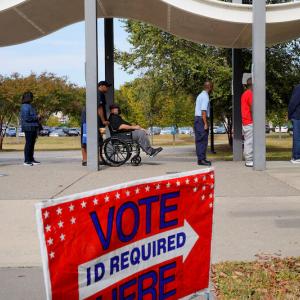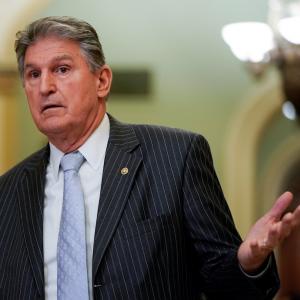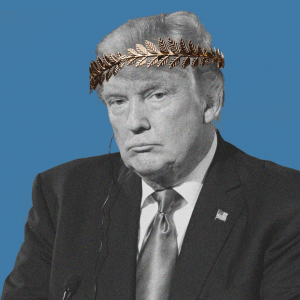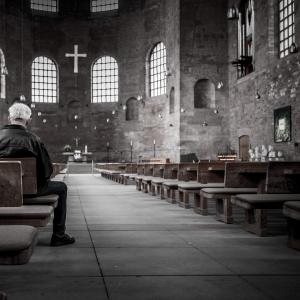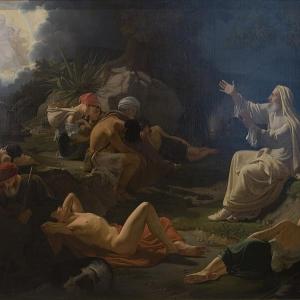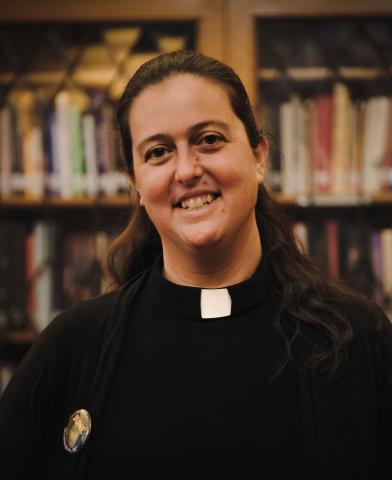
The Rev. Dr. Liz Theoharis is a pastor, biblical scholar, author, and the Director of the Kairos Center for Religions, Rights, and Social Justice at Union Theological Seminary. She is also the co-chair of the Poor People’s Campaign: A National Call for Moral Revival with the Rev. Dr. William J. Barber II. Follow her on Twitter at @liztheo.
Posts By This Author
This Midterms, the Bible Reminds Us Poor People Have All the Power
Since 2020, a rolling coup of voter suppression laws has left 55 million voters living in states with restrictions on who, how, when, and where people can vote. Also alarming are reports that the majority of Republican candidates in the midterms “deny or question” the 2020 election results. At times, it feels as though the loudest political opinions are coming from people who want to suppress the vote or peddle lies about the 2020 election. But when poor and low-income people, alongside clergy, moral leaders, and activists vote for an agenda that promotes human rights and dignity, we have the power to make a difference.
Woe to Those Who Enrich Themselves at the Expense of the Poor
After months of negotiations, Sen. Joe Manchin (D-W.Va.) decided to kill the Build Back Better agenda. He made the announcement on Fox News Sunday, just days before an already-fraught holiday as we’re seeing COVID surges, essential workers still being paid wages of those considered expendable, and storms and extreme weather wreaking havoc on lives and livelihoods. When voicing his dissent for the Build Back Better agenda, despite making promises that he was negotiating in good faith since the summer, Manchin had the nerve to say: “I tried everything humanly possible.”
Food Lines in The ‘Land of Plenty’
A biblical look at the crisis of poverty today.
Biblical roots of justice
The founding story in the Bible tells of a diverse group of freedom fighters who have been on the march since the burdens of Egyptian slavery and scarcity got to be too much, since leaders like Moses, Aaron, Miriam, and many others—named and unnamed—came forward to say, “It doesn’t have to be this way.” And God sent plagues and pandemics that only hardened the heart of the ruling authorities, who doubled down on misery, dispossession, and militarization.
America's Wannabe Caesar
Trump’s daily press briefings resemble the kind of public idolatry that ancient Caesars engaged in.
In this Kairos Time, Will We Embody Church?
The church is called to meet Jesus in the streets with the homeless — for in a time when people are called to shelter in place they have no place to go. The church must also meet Jesus in places like Flint, Mich. where poor people who are already suffering from respiratory conditions related to contaminated water are amongst those at highest risk.
Plagues Expose the Foundations of Injustice
Before a plague, God always sends prophets, often sick and impoverished themselves, to tell the powerful to reject wickedness.
Fifty Years After the Poor People’s Campaign, Another Call for Moral Revival
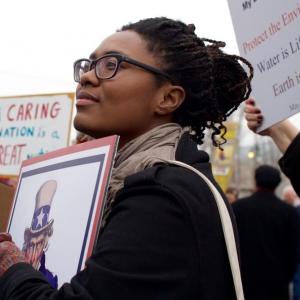
Image via Jana Shea/Shutterstock.com
Just like poverty stunted the lives of the people of Jesus’ day, poverty hampers, circumscribes the lives of millions of God’s children in our day. 1 in 2 people living in the United States are poor or low-income; 43 percent of US children live in families that struggle to feed, clothe, and house them. There are 28 million people without health care, 65 million workers who get paid too little to sustain themselves and their families, and a record 14 million (1 in 9) U.S. homes are vacant. 3.5 million people experience homelessness each year and 39 percent of them are children.
